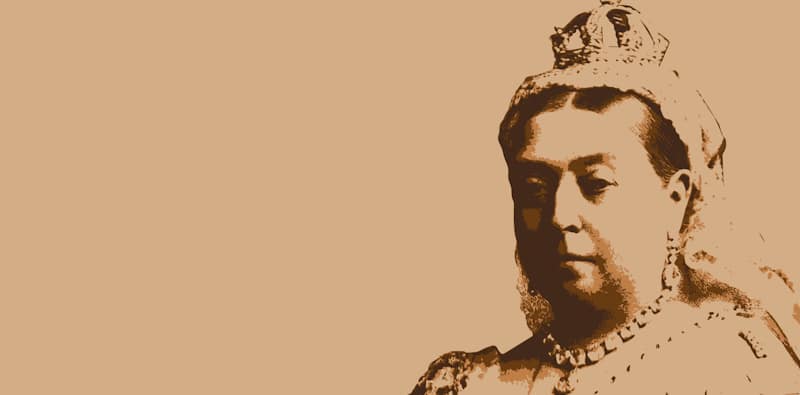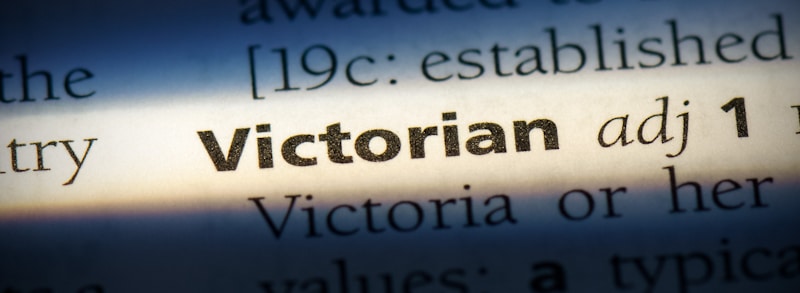Capitalization rules are usually tricky to comprehend and could vary based on the writing style you intend to or are supposed to follow. When it comes to capitalizing historical terms or classic periods, things may get even more complex since the knowledge needed to understand the context in which the term gets used may be limited. So, should you capitalize the term “Victorian”?
The word “Victorian” is capitalized since it denotes a traditional and prehistoric time-period. “Victorian” is also a proper noun, or named after a person, which means the word gets capitalized as per English grammar rules – whether it’s in the middle of a sentence or at the beginning of one.
Keep reading to learn more about the Victorian era, rules of capitalization for time periods in general, and lots more.
“Victorian” – Definition
The term “Victorian” is a proper noun indicating a historical time period. The noun basically denotes the Victorian era that took form in 1837 and lasted until 1901. Though the period has its fair share of critics and is looked down upon for quite a few of its shortcomings, one cannot deny the fact that the Victorian age was a period of progress and ingenuity.
It is the period during which the first Industrial Revolution of the world happened. Social change and political reform, Charles Darwin and Charles Dickens, a boom in the railway sector, and the very first telegraph and telephone were some of the highlights of the period. The era was also the phase during which rural life was on the demise and cities grew and expanded rapidly.
Who was Queen Victoria?
The Victorian era is named after Victoria, the queen who ruled the United Kingdom of Ireland and Great Britain from June 20, 1837, until her demise in 1901. She ascended the throne after the death of William IV, her uncle. She was just 18 when she rose to the throne. Not to mention, Queen Victoria was the second-longest ruling monarch of Britain.
During her reign, Britain emerged into one of the biggest empires in the world – with 25 percent of the world population showing allegiance to her. After her death on January 22, 1901, at age 81, she was succeeded by her eldest son, Edward VII, who ruled until his demise in 1910.
The Victorian “Double Standards”
The term “Victorian”, in today’s times, connotes a prudish denial to accept gender equality. Though some educated Victorians wrote extensively about the topic of “sex” – including pornography, psychological studies, and medical treatises – most of the people from that era never publicly discussed sex.
Middle-class women considered not knowing much about their physiological self, biological needs, and ability to reproduce as a matter of pride. Moreover, Victorians had sexual double standards that remained unquestioned during the period. They hypothesized men needed and wanted sex, and women had no sexual desire and existed purely to submit to their husbands’ sexual requirements.
Victorian gender ideology stated women and men were different and served unique purposes. According to the system, men were strong physically – women, on the other hand, were weak. Sex was central for men and reproduction was integral to women. The people in the era also believed men were independent, while their female counterparts were not; and so on.
Capitalization Rules for Time Periods
Capitalization guidelines for historical time periods, in general, are history-influenced. In other words, if the time period is of historical or cultural significance, it’s usually capitalized in all kinds of writings. These historical eras are also usually named directly after proper nouns, such as “Victorian”.
There are also time periods that may not be named after an individual or be proper names, but still, get capitalized in writings because they denote a specific time period. For example, the general noun the “Great Depression” is not named after a person, but it still is capitalized when used in sentences or headlines.
Names of cultural and political events or periods are usually capitalized, but when the nomenclature is used in a generic way, the designations are typically lowercase. For example:
- Academics prospered during the Renaissance.
- The district is undergoing a renaissance.
Similarly,
- The Golden Age is considered Hesiod’s first Ages of Man.
- Rock music has seen several golden ages.
Another example:
- The infamous Cultural Revolution brought about a period of turmoil in China for close to a decade.
- The American society has gone through several cultural revolutions of late.
Descriptive Eras Should Be in Small Letters
Other historical periods that are not named after proper names or associated with specific decades are lowercase. For example, the noun “the colonial period” doesn’t denote any specific period of colonization. It is a more general term and, therefore, written in lowercase.
Era names that are purely descriptive should be kept in lowercase. However, the names of specific regions or countries that may follow the explanatory names must be capitalized. For example:
- imperial Rome
- ancient Greece
No civilizations have ever had the names “Imperial Rome” or “Ancient Greece”. The initial word in these phrases, which denote a time-period, are mere descriptors and, thus, lowercased.
- The program is a general intro to ancient Greece history.
- This essay will throw light on imperial Rome’s economic structure.
A few other descriptive era names that are written in lowercase include “baroque period”, “romantic period”, “classical period”, and “ancient world”.
Centuries Remain Lowercase
Also, centuries are usually not capitalized – including the number mentioned prior to them. For example:
- During the sixteenth century, England evolved into an empire.
- During the eighteen hundreds, great technological advancements were made.
There is, however, a difference in how you write centuries between different writing styles. The couple of sentences mentioned above have the time period centuries mentioned in the Chicago style. The following are the same sentences in AP style:
- During the 16th century, England evolved into an empire.
- During the 1800s, great technological advancements were made.
If the above centuries become part of proper names, they will be capitalized. For example:
- The Eighteenth Dynasty is the New Kingdom’s first dynasty.
Traditionally Capitalized Era Names
Some periods are capitalized traditionally, particularly to avoid confusion with regular usage. They include:
- Common Era
- Dark Ages
- Counter-Reformation
- Gay Nineties
- The Enlightenment
- Jazz Age
- Gilded Age
- Progressive Era
- Middle Ages
- Roaring Twenties
Nouns and adjectives referring to cultural movements, schools, and styles – architectural, artistic, musical, etc. – get capitalized if derived from proper nouns: Gregorian, Cartesian, Aristotelian, Platonism, Pre-Raphaelites, Keynesian.
In certain other scenarios, they are usually not capitalized. A few of them, however, could be to distinguish the nouns from extensively used words. The lowercase technique is preferred to ensure a given text is not excessively populated with capitals.
Example Sentences with Different Time Periods
Here is a list of sentences with various time periods so that you understand which periods get capitalized and which ones stay in lowercase:
- The Ice Age concluded some 12,000 years ago.
- The Stone Age is usually credited with making avid tool makers out of humans.
- The Renaissance was a period of cultural, intellectual, and artistic advancements.
- The antique collectors put a price tag on the colonial period furniture.
- Most of the veterans of World War I are now deceased.
- Poor hygiene, during the Middle Ages, was partly to blame for the bubonic plague’s spread.
- Arthur Miller was inspired by the McCarthy Era to pen The Crucible.
- Middle school students usually like studying the social upheaval that took place during the Roaring Twenties.
Example Sentences with the Word “Victorian”
The following are sentences with the noun “Victorian”:
- The Victorian era got its name from Queen Victoria, who was in power for more than 63 years.
- Hence, it’s also referred to as the Victorian period.
- The century-old Victorian building came with eight rentable rooms that had their own bathrooms.
- It consists of just one class, who immediately take precedence after the Royal Victorian Order’s fourth class.
- They wore long white trousers with the classic Victorian cut, and the bottom had frills.
- Victorian schools didn’t have calculators, but the abacus was existent.
- Victorian thinkers christened it as the “fathomless abyss” or the “great chasm”.
- The now converted sail shed consists of a stylish living area and Victorian and Edwardian antiques.
- The classic font offsets what looks like Victorian arcades.
- It was commonly used in the carpet bedding schemes of the Victorian era.
- Edwardian and Victorian Britain is strewn with proof of state and philanthropic benefaction.
- The building was a brothel during the Victorian age.
- The several fine Victorian structures in the region are proof of the town’s prosperity during the 18th century.
- The town has been frequented by several famous Victorian menageries and circuses but had never witnessed anything on such a large scale.
Conclusion
Specific historical events, eras, periods, etc. are usually capitalized so that they could be differentiated from the many eras, periods, wars, etc. that have taken place otherwise. The noun “Victorian” is capitalized not just for the purpose of distinctiveness but also because it’s a proper noun.
Long story short, “Victorian” should be capitalized in texts – irrespective of the form or style of writing, and where and how the noun appears in texts. Words or terms that immediately follow the proper noun, however, may or may not be capitalized. For example, the noun “era” in the “Victorian era” is usually not capitalized.
Shawn Manaher is the founder and CEO of The Content Authority. He’s one part content manager, one part writing ninja organizer, and two parts leader of top content creators. You don’t even want to know what he calls pancakes.




